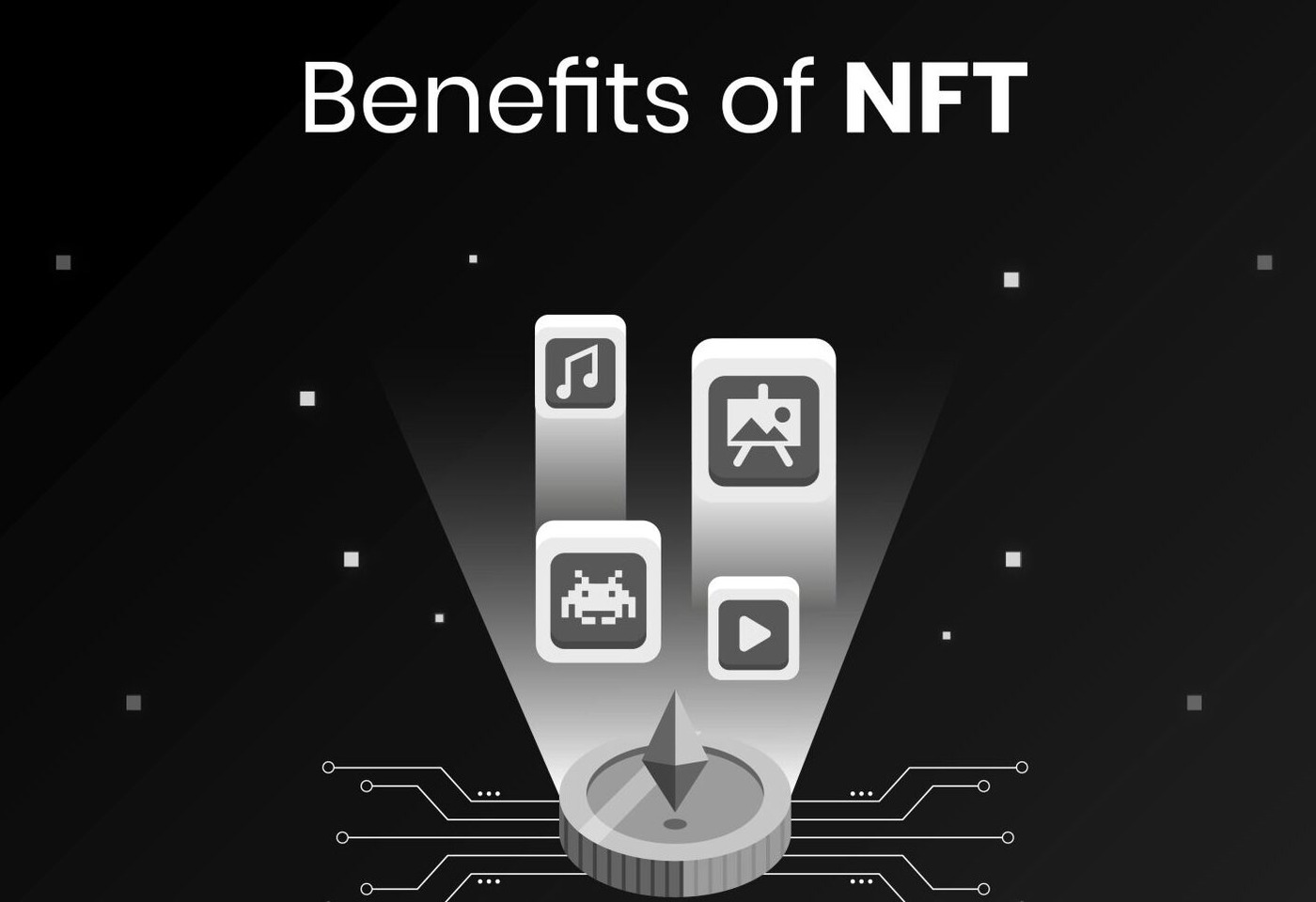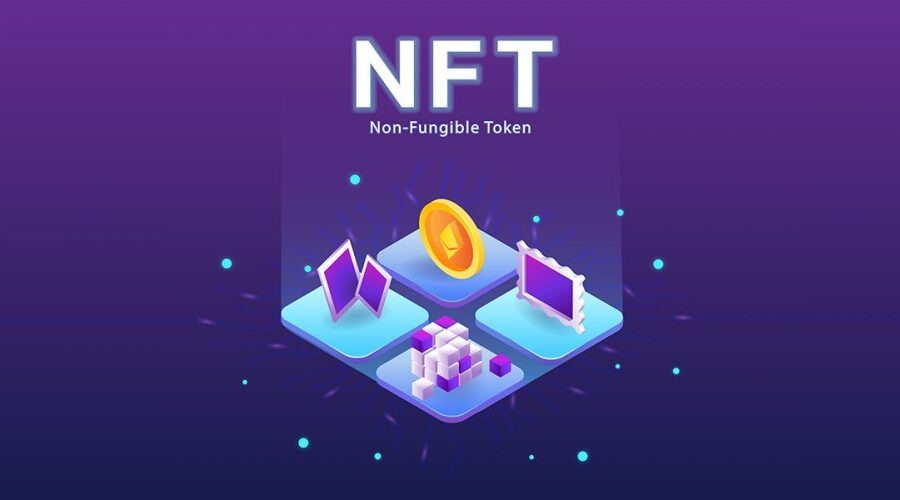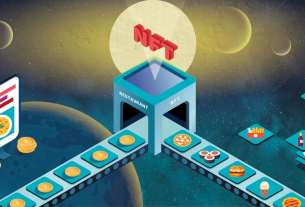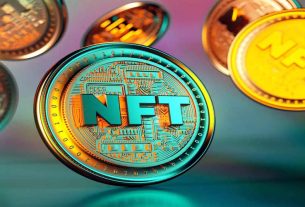The digital landscape has revolutionized various aspects of our lives, including the way we conduct transactions and collaborate globally. Non-Fungible Tokens (NFTs) have emerged as a significant innovation in this space, unlocking new possibilities for artists, creators, and enthusiasts worldwide. In this article, we will delve into the realm of NFTs, understanding their role in facilitating borderless transactions and promoting global collaboration.
Introduction to NFTs
Non-Fungible Tokens, represent unique digital assets that can be bought, sold, and traded on various blockchain platforms. Unlike cryptocurrencies such as Bitcoin or Ethereum, which are fungible and can be exchanged on a one-to-one basis, Non-Fungible Tokens are distinct and indivisible. They are built on blockchain technology, which ensures transparency, security, and immutability of ownership.
What are NFTs?
Non-Fungible Tokens can encompass a wide range of digital assets, including artwork, collectibles, music, videos, virtual real estate, and even virtual pets. These assets are tokenized, meaning they are assigned a unique digital signature that verifies their authenticity and ownership. This tokenization process allows creators to establish provenance, rarity, and scarcity of their digital creations, making them desirable and valuable in the digital marketplace.
Understanding the Value of NFTs
Non-Fungible Tokens have garnered significant attention for their ability to establish unique digital ownership and unlock new avenues for creators and collectors. Let’s delve into the value of Non-Fungible Tokens and the opportunities they bring:
- Authenticity and Ownership Verification: Non-Fungible Tokens leverage blockchain technology to provide transparent and immutable records of ownership. This ensures that digital assets, such as artwork or collectibles, have a verifiable and traceable history, reducing the risk of counterfeit or fraudulent transactions.
- Scarcity and Rarity: Non-Fungible Tokens introduce the concept of scarcity to the digital world. By tokenizing digital assets, creators can establish limited editions or unique pieces, increasing their value and desirability. The notion of rarity enhances the perceived worth of Non-Fungible Tokens, driving demand among collectors and enthusiasts.
- Direct Monetization for Creators: Non-Fungible Tokens empower creators to monetize their work directly, bypassing traditional intermediaries. Artists, musicians, and content creators can showcase and sell their digital creations on Non-Fungible Tokens marketplaces, earning income from initial sales and potential royalties from future transactions.
- Enhanced Engagement and Fan Interaction: NFTs foster deeper connections between creators and their audience. Collectors become part of an exclusive community, owning and showcasing their favorite digital assets. This engagement can lead to increased support, collaboration opportunities, and even personalized experiences for fans.
- Innovative Revenue Streams: NFTs introduce new revenue streams for creators. Through smart contracts, artists can receive a percentage of subsequent sales, enabling ongoing income from the appreciation of their work. This dynamic revenue-sharing model incentivizes creators and rewards them for their contribution to the digital ecosystem.
The value of NFTs lies in their ability to revolutionize ownership, create digital scarcity, and provide direct monetization opportunities for creators. As the NFT space continues to evolve, we can expect further exploration of these value propositions and the emergence of new possibilities in the ever-expanding digital realm.
NFTs and Borderless Transactions
One of the key advantages of NFTs is their ability to facilitate borderless transactions. Traditional methods of buying and selling art, for example, often involve geographical limitations, intermediaries, and complex legal processes. With NFTs, anyone with an internet connection can participate in the global digital marketplace, transcending geographical barriers. Artists can directly reach a global audience, expanding their reach and potential for sales.
NFTs for Global Collaboration
Non-Fungible Tokens (NFTs) have emerged as a catalyst for global collaboration, transcending geographical and cultural boundaries. NFTs enable artists, creators, and enthusiasts from different corners of the world to connect and collaborate. Through online marketplaces and platforms, individuals can discover and engage with each other’s work, sparking collaborations that were once limited by physical distance.
Smart contracts embedded within NFTs ensure fair and automatic revenue sharing among collaborators. This eliminates complexities and ambiguities in financial arrangements, fostering trust and enabling contributors to receive their rightful shares of proceeds from NFT sales. NFTs facilitate the exchange of ideas and expertise across diverse backgrounds and artistic disciplines. Artists and creators can explore new realms of creativity by collaborating with professionals from various fields, blending their skills to produce unique and innovative NFT projects.
NFTs provide a platform for cultural exchange, allowing artists to share their heritage, traditions, and stories with a global audience. This cultural diversity enriches the NFT ecosystem and expands the perspectives and experiences that can be portrayed through digital art and collectibles. NFTs introduce the concept of collective ownership, where multiple individuals can own a fraction of a valuable digital asset. This collective ownership model fosters a sense of community and engagement among stakeholders, encouraging collaboration and support for shared projects.
Benefits of NFTs in Borderless Transactions

- Global Accessibility: NFTs enable individuals from around the world to participate in the digital marketplace without geographical restrictions. Artists and creators can reach a global audience, expanding their potential for sales and collaboration.
- Direct Peer-to-Peer Transactions: NFTs facilitate direct transactions between creators and collectors, eliminating the need for intermediaries. This direct interaction fosters stronger connections and allows for a more personalized experience.
- Enhanced Transparency and Authenticity: NFTs leverage blockchain technology, ensuring transparency and immutability of ownership. Buyers can verify the authenticity and provenance of digital assets, reducing the risk of counterfeit or fraudulent transactions.
- Fractional Ownership Opportunities: NFTs introduce fractional ownership, allowing multiple individuals to own a portion of a valuable digital asset. This democratizes access to high-value assets, making them more affordable and accessible to a wider audience.
- Royalties and Revenue Sharing: NFTs offer creators the opportunity to earn royalties from subsequent sales. Smart contracts embedded within NFTs automatically distribute a percentage of profits to the original creators, ensuring ongoing revenue and incentivizing further creativity.
Challenges and Limitations of NFTs
While NFTs offer numerous benefits, they also come with challenges and limitations. One primary concern is the environmental impact of blockchain technology, particularly the energy consumption associated with minting and trading NFTs. This issue has sparked debates and calls for more sustainable approaches within the NFT ecosystem.
Moreover, there have been instances of fraud and copyright infringement in the NFT space, raising questions about the adequacy of existing regulations and the need for better safeguards. Additionally, the volatility of the cryptocurrency market can affect the value of NFTs, leading to price fluctuations and potential financial risks for investors.
Future Implications of NFTs
Non-Fungible Tokens hold immense potential to reshape various industries and revolutionize digital experiences. Here are some future implications to consider:
- Expansion into Diverse Industries: While Non-Fungible Tokens have gained significant traction in the art world, their applications extend far beyond. Industries such as real estate, gaming, fashion, music, and even virtual reality are exploring the integration of NFTs. This opens up new avenues for creativity, monetization, and immersive digital experiences.
- Redefining Ownership and Value: Non-Fungible Tokens challenge traditional notions of ownership by providing a unique and verifiable digital ownership experience. As Non-Fungible Tokens continue to gain mainstream adoption, their value and significance in the digital realm are likely to increase, potentially transforming how we perceive and trade assets.
- Creating New Revenue Models: Non-Fungible Tokens enable creators to establish ongoing revenue streams through royalties. As the NFT ecosystem evolves, we can expect the emergence of innovative revenue-sharing models and licensing frameworks, ensuring fair compensation for artists, musicians, and content creators.
- Integration with Emerging Technologies: The fusion of Non-Fungible Tokens with technologies like virtual reality (VR) and augmented reality (AR) has the potential to revolutionize digital experiences. Imagine owning virtual assets, exploring immersive virtual worlds, and interacting with NFT-based collectibles in an entirely new way.
- Regulatory and Legal Considerations: As the popularity of Non-Fungible Tokens grows, regulators and legal entities will need to adapt and establish frameworks that protect creators and collectors while addressing issues like intellectual property rights, fraud prevention, and consumer protection.
Overall, the future implications of NFTs are vast and dynamic. They have the power to reshape industries, redefine ownership, and unlock unprecedented opportunities for creators and consumers in the digital age.
Conclusion
Non-Fungible Tokens have emerged as a game-changing innovation, revolutionizing the way we conduct transactions and collaborate globally. NFTs enable borderless transactions, connecting artists and creators with a global audience and providing new avenues for collaboration. While challenges and limitations exist, the future implications of NFTs are vast and promising, with the potential to transform various industries.
FAQs
1. Are NFTs only limited to digital artwork?
No, NFTs can represent a wide range of digital assets, including music, videos, virtual real estate, and more. The possibilities are expanding rapidly.
2. How can I ensure the authenticity of a Non-Fungible Tokens?
NFTs utilize blockchain technology to establish authenticity and provenance. Each Non-Fungible Tokens has a unique digital signature that verifies its ownership and origin.
3. Can Non-Fungible Tokens be resold?
Yes, Non-Fungible Tokens can be resold in the digital marketplace. In fact, creators often receive royalties from subsequent sales, ensuring ongoing revenue.
4. Do Non-Fungible Tokens have any environmental impact?
The energy consumption associated with blockchain technology and Non-Fungible Tokens has raised concerns. Efforts are being made to explore more sustainable approaches.
5. What industries are exploring the use of Non-Fungible Tokens?
Various industries, including real estate, gaming, fashion, and music, are actively exploring the potential of Non-Fungible Tokens and integrating them into their ecosystems.
I’m a best-selling author and leading authority in the world of cryptocurrency. I have been involved in the crypto community since 2012 and have helped numerous startups and organizations on blockchain strategy. I am a regular contributor to Forbes and CoinDesk, and my work has been featured in The Wall Street Journal, Bloomberg, Reuters, and other major media outlets. In addition to writing for publications, I am also a sought-after speaker on cryptocurrency and blockchain technology niches respectively.




